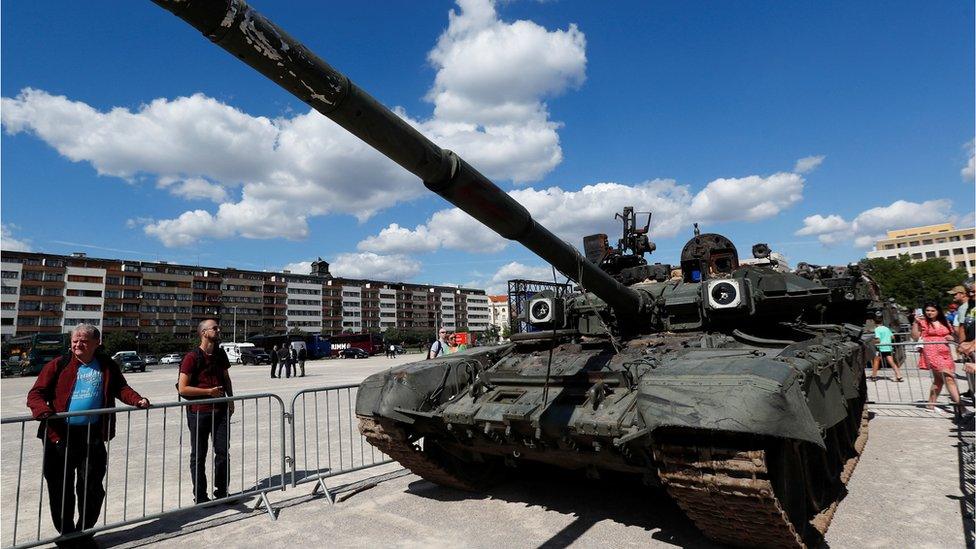Ukraine claims arms depot attack in occupied Kherson with Himars rockets
- Published
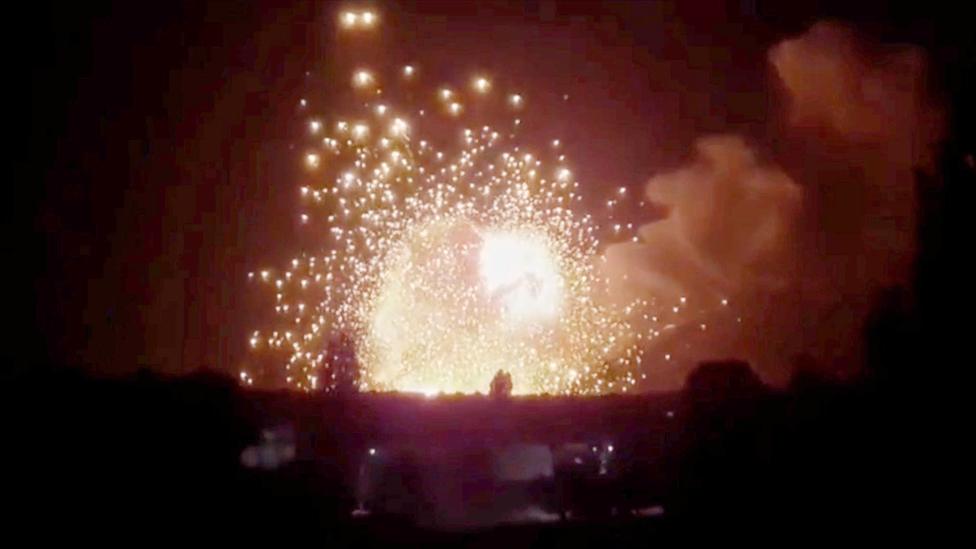
Russian reports said several people were killed in the attack and that dozens of people had been left homeless
Ukraine's military says it has destroyed a Russian ammunition depot in the southern city of Nova Kakhovka, killing dozens of soldiers, in an attack apparently involving US-supplied missiles.
However, Russian occupation officials say homes and warehouses were hit, leaving seven dead and up to 80 hurt.
It was not possible to verify the extent of damage or casualties.
Unconfirmed footage of several powerful explosions was shared on social media.
Ukrainian presidential aide Mykhaylo Podolyak attributed the attack to the US-supplied Himars multiple rocket launcher and spoke of a "reality collision" for the world's "second army". A Russian-installed official in the southern Kherson region, Katerina Gubareva, accused Ukraine of bombing "peaceful cities with American weapons".
Himars is far more accurate than Russia's equivalent systems and is already being credited with a string of recent attacks deep into Russian-held territory.
Large areas of the Kherson region were seized by the Russians in the first weeks of the invasion, but Ukrainian forces have launched a counter-offensive while Russia has focused on its military push into Ukrainian territory in the east. Kyiv has urged residents to leave the area to escape the counter-attack.
Russian-appointed officials made no mention of an arms depot being hit but said instead that warehouses containing the mineral fertiliser saltpetre had exploded - a claim ridiculed by Ukrainian officials.
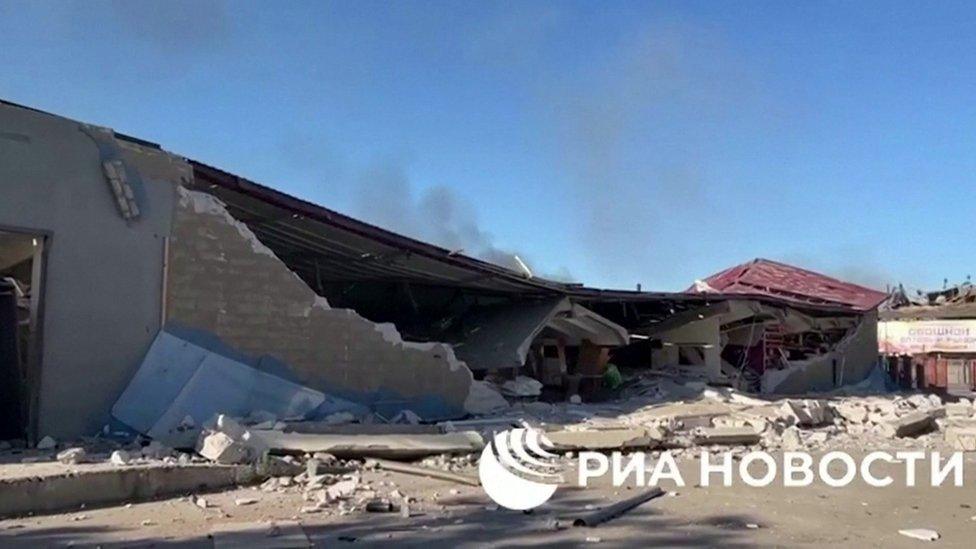
Russian reports said warehouses for aid or mineral fertiliser were hit, disputing Ukrainian accounts
Vladimir Leontyev, who was put in charge of the Kherson region, told the Russian Tass news agency that dozens of residents had been left homeless and the city significantly damaged. Another Russian-backed official, Kirill Stremousov, said seven people were still listed as missing.
Details of who was caught up in the explosions were unclear, but Ukrainian military officials said more than 50 Russian soldiers were killed and military hardware destroyed. A spokesman in Odesa, Serhiy Bratchuk, said Nova Kakhovka was now "minus" its ammunition depot.
While Russian claims of damage to civilian buildings could not be confirmed, both sides agreed a Himars launcher had played a part in the attack. The first M142 High Mobility Artillery Rocket Systems (Himars) arrived in Ukraine at the end of June and were immediately linked to explosions at Russian ammunition depots and command centres as far as 70km from the front line.
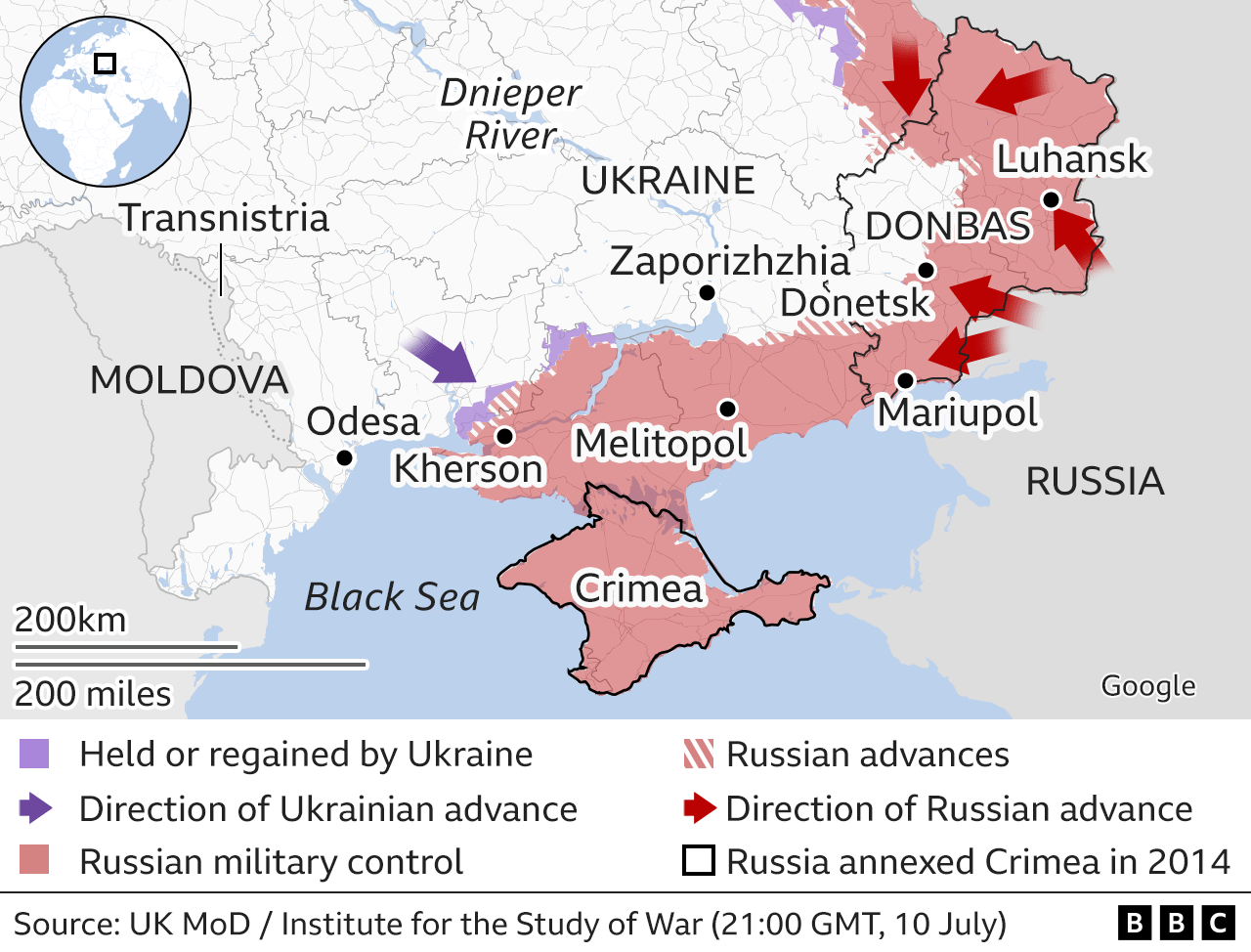

Russian TV said Monday night's attack was so powerful that windows within a 2km-radius (1.25 miles) had blown out, flats had been destroyed, and hospitals and a market damaged. Russia has regularly accused Ukraine of targeting its own civilians.
The Russian Ria Novosti agency published footage of what it said was damaged warehouses from a humanitarian aid centre. Ukrainian local official Serhiy Khlan rejected as propaganda Russian claims that a hospital and residential buildings had been destroyed.
Mr Khlan appealed to residents to avoid the areas under attack, asserting that those whose windows had been blown out were happy as they realised Ukrainian forces were close.
Allow X content?
This article contains content provided by X. We ask for your permission before anything is loaded, as they may be using cookies and other technologies. You may want to read X’s cookie policy, external and privacy policy, external before accepting. To view this content choose ‘accept and continue’.

Meanwhile, Russia's bombardment of Ukrainian cities has claimed further lives. The number killed in Saturday's attack on a five-storey block of flats in the eastern town of Chasiv Yar has risen to 45, including one child, local officials say. Nine people have been rescued from the rubble.
The southern city of Mykolaiv was hit early on Tuesday morning, leaving 12 people wounded.
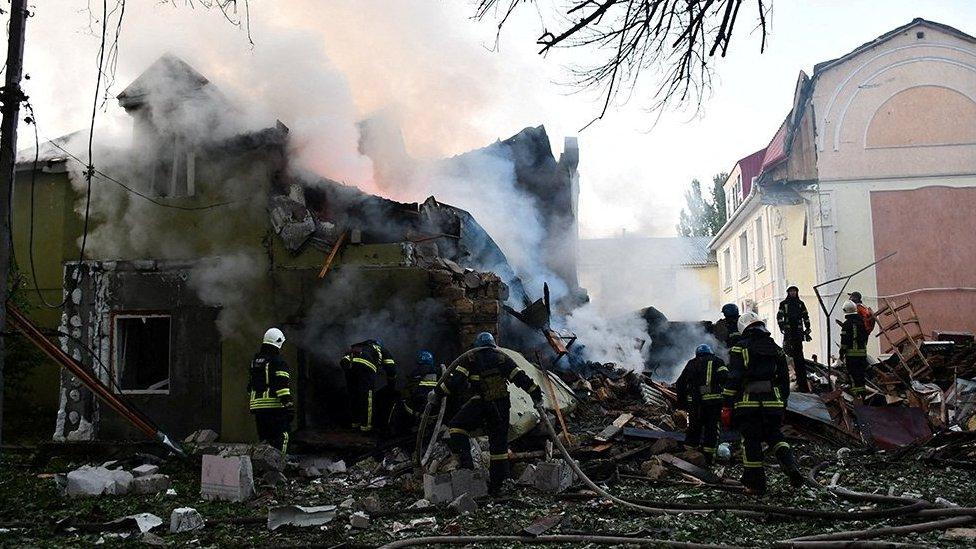
Residential buildings in Mykolaiv were damaged and officials said 12 people were wounded
BBC correspondent Sarah Rainsford said windows had been blown out in the main hospital building in the city as well as nearby flats.
There were multiple holes in the ground and shrapnel damage at the scene, she said, from what looked like cluster bombs: "People tell me it was the heaviest night of shelling they remember."

War in Ukraine: More coverage

Related topics
- Published11 July 2022
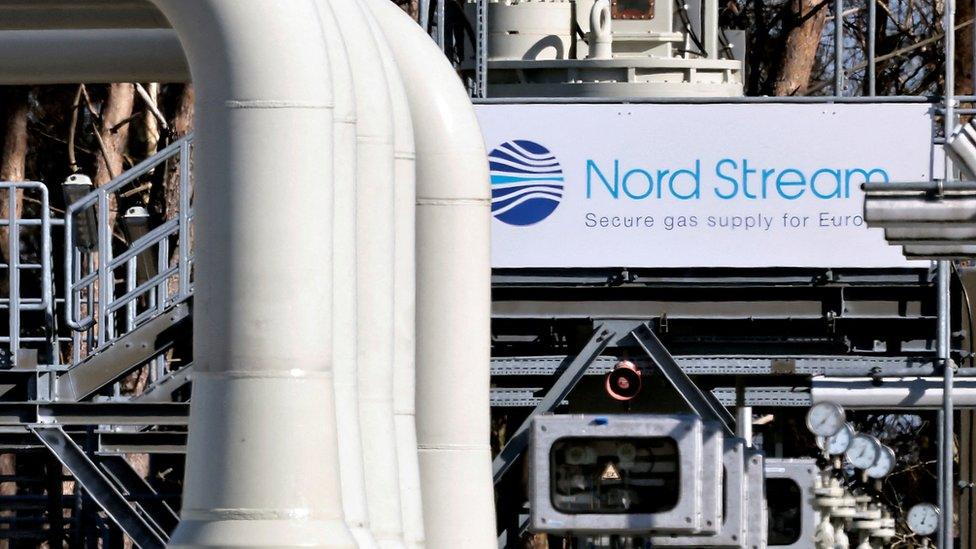
- Published12 July 2022
